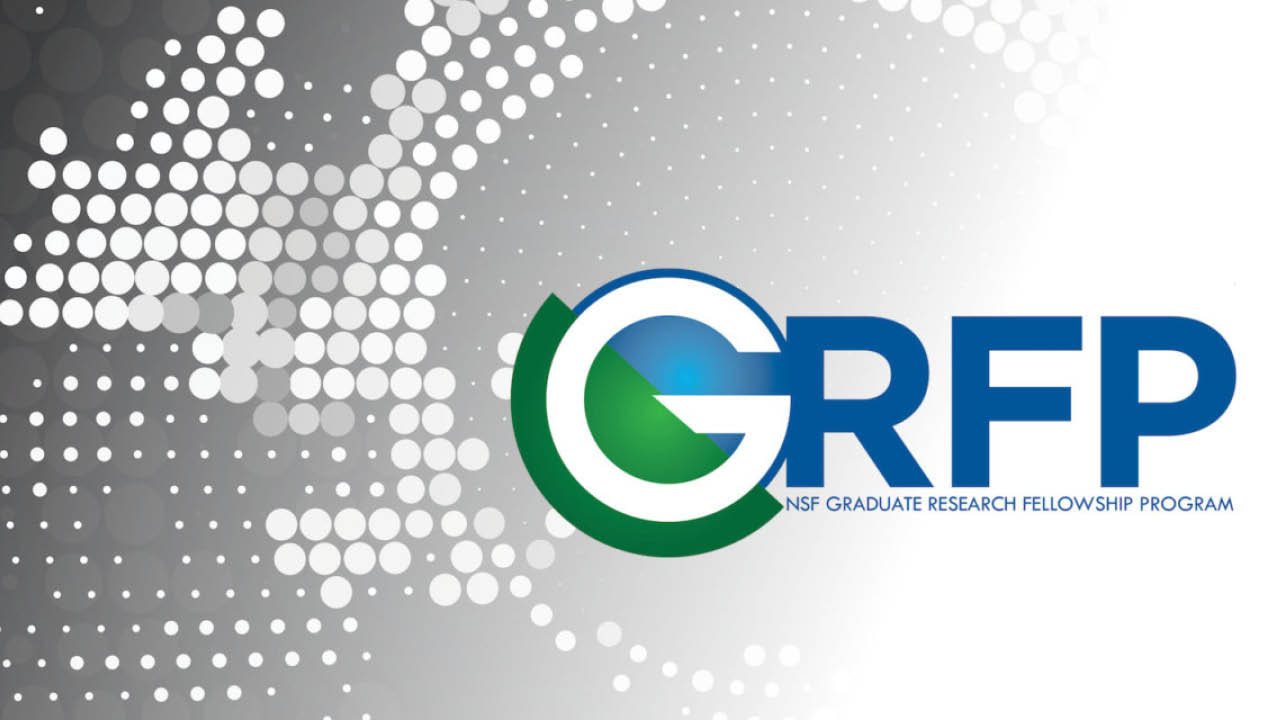
May 09, 2023
Following in the early footsteps of esteemed Nobel laureates, national leaders, and esteemed faculty, 38 of Tech’s graduate students have just been awarded the National Science Foundation Graduate Research Fellowship (NSF GRF).
More than 12,000 applicants from across the United States apply to the highly sought after Fellowship, but only about 16% of those who apply are offered it. The program recognizes and supports outstanding graduate students in NSF-supported STEM disciplines who are pursuing research-based master’s and doctoral degrees.
“The success of Georgia Tech’s research mission relies very heavily on the work of our graduate students,” said Bonnie Ferri, vice provost for Graduate and Postdoctoral Education. “We are proud and honored to host the NSF GRF Scholars, who have outstanding accomplishments and potential for research. We are excited to see what they will do with this tremendous opportunity.”
This year, the NSF also granted an “honorable mention” designation to 11 of Tech’s graduate student applicants. This designation acknowledges the student’s potential for success in future graduate studies and research.
The Fellowship provides significant financial support to recipients, including a three-year annual stipend of $37,000 along with a $12,00 cost of education allowance for tuition and fees. Recipients also receive access to opportunities for professional development.
NSF Graduate Research Fellows are anticipated to become knowledge experts who can contribute significantly to research, teaching, and innovations in science and engineering. These individuals are crucial to maintaining and advancing the nation’s technological infrastructure and national security as well as contributing to the economic well-being of society at large.
The Graduate Research Fellowship has a long history of selecting recipients who achieve high levels of success in their future academic and professional careers. Tech’s fellowship recipients will join an exclusive group of previous fellows. Currently, 42 Fellows have gone on to become Nobel laureates, and more than 450 have become members of the National Academy of Sciences. In addition, the Graduate Research Fellowship Program has a high rate of doctorate degree completion, with more than 70% of students completing their doctorate within 11 years.
Introducing Tech’s 49 graduate student awardees and honorees for the 2023 NSF Graduate Research Fellowship:
Chemistry
• Joshua Saito, chemical synthesis
• Caroline Sargent, chemical theory, models, and computational models
Computing/Interdisciplinary/Engineering
• Elton Pinto, formal methods, verification, and programming languages
• Ashley Boone, human computer interaction
• George Stoica, machine learning
Engineering
• Preethi Mysore, aeronautical and aerospace engineering
• Satvik Kumar, aeronautical and aerospace engineering
• Alexander Chipps, aeronautical and aerospace engineering
• Afra Nawar, bioengineering
• Maxwell Kazman, bioengineering
• Kaitlin Jacobson, bioengineering
• Emily Heckard, bioengineering
• Jamison Siebart, biomedical engineering
• Rani Kumar, biomedical engineering
• David Pando Gonzalez, chemical engineering
• Felicia Oentoro, chemical engineering
• Christopher Allen, chemical engineering
• Christian Douglas, civil engineering
• Jesse Jiang, electrical and electronic engineering
• Abel Sapirstein, industrial engineering and operations research
• Alina Gorbunova, industrial engineering and operations research
• Joseph Boone, industrial engineering and operations research
• Jacob Aguirre, industrial engineering and operations research
• Abir Muhuri, mechanical engineering
• Max Asselmeier, mechanical engineering
• Amro Alshareef, robotics
Geosciences
• Samuel Ofori, geophysics
• Samanatha Motz, hydrology
• José Ramírez Colón, planetary science
Life Sciences
• James DuBose, ecology
• Princess Pinamang, environmental biology
• Carlissa Roush, evolutionary biology
Materials Research
• Grayson Harrington, computationally intensive research
• Henry Kantrow, polymers
Physics and Astronomy
• Lila Nassar, quantum sensing for biophysics
• Cassandra Shriver, physics of living systems
• Adele Payman, plasma physics
STEM Education and Learning Research
• Lara Schenck, technology education
Honorable Mentions
• Spenser Wipperfurth, climate and large-scale atmospheric dynamics
• Alexis Ramsey, microbial biology
• John Pederson, chemical theory, models, and computational methods
• Liam Ordner, chemical synthesis
• Elizabeth Kimmel, aeronautical and aerospace engineering
• Dru-Ann Harris, geomorphology
• Rachel Harris, electrical and electronic engineering
• Haley Bassham, polymers
• Kathryn Bairley, photonic materials
• Oliver Azevedo, geophysics
• Alexander Arbogast, mechanical engineering